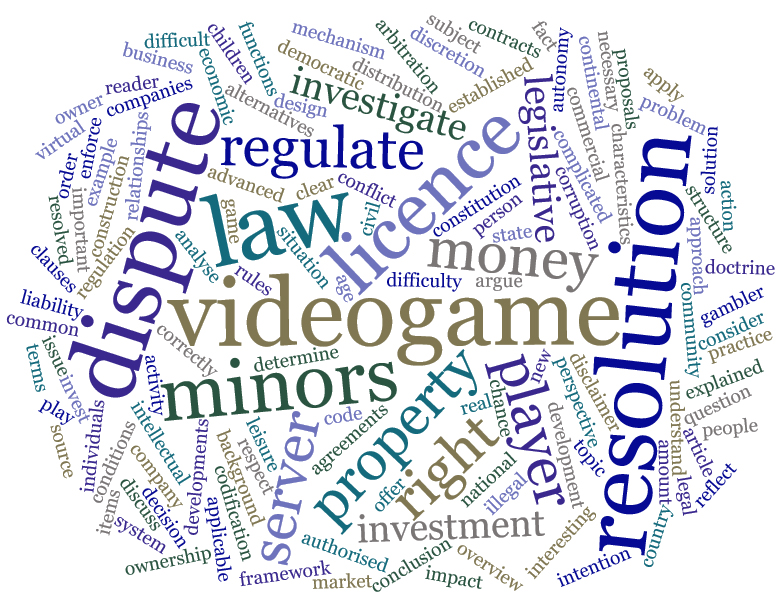Abstract
In recent years, technology has enabled an impressive development in video games. Virtual worlds have been created in which people play for many hours and invest a lot of money, but what happens if there is a dispute? How are property rights regulated within a video game? What mechanisms exist to resolve disputes?
Within video games, in addition to purchasing objects, real estate can also be purchased. There are cases where people have invested more than €500,000 in acquiring property in a video game.
If someone were to steal the property, what defence mechanisms does the owner have? In fact, is someone who purchases an object inside a video game really the owner?
In the real world, these questions would be very easy for any jurist to answer. The problem is that in virtual worlds, the laws of a country usually do not apply, and frequently minors or people who do not have a clear identity are involved.
On the other hand, there are ancillary but equally relevant issues: intellectual property issues, ownership issues with respect to in-game items, in-game regulation, and questions of ownership of the video game itself.
These issues present a high degree of uncertainty while at the same time gaining more and more prominence, both economically and socially.
This article will offer an overview of the main issues in order to provide the reader with a background to understand the topic and offer a possible solution.
In addition, it will offer a reflection on how we should approach the problem; whether this problem should be approached from a legal perspective or not and whether this perspective should be more in line with common law or continental law.
Finally, it should be noted that the importance of dispute resolution in video games is important, as games such as Roblox or Fortnite are being the precursors of the metaverse.

Dieses Werk steht unter der Lizenz Creative Commons Namensnennung - Nicht-kommerziell - Keine Bearbeitungen 4.0 International.
Copyright (c) 2021 Zeitschrift für Europäische Rechtslinguistik (ZERL)

